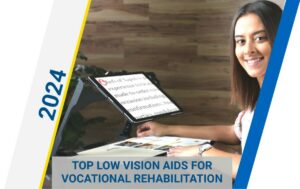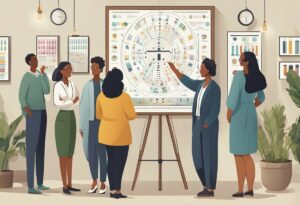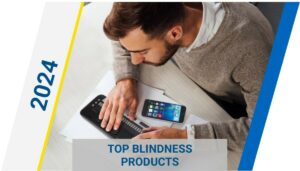Blind Rehabilitation Services for Blind and Visually Impaired Veterans
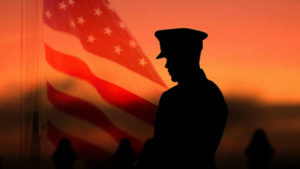
If you or a loved one is a blind or visually impaired veteran, you are not alone. In the US, there are roughly 157,000 veterans who are legally blind, and more than one million veterans who have low vision that limits their ability to perform daily living activities. Those numbers are rising as veterans age and develop vision loss from diseases, such as macular degeneration, diabetic retinopathy and glaucoma. However, many veterans do not know about the blind rehabilitation services provided by the Veterans Administration.
If you are or know of a veteran with visual impairment, here is a description of the Veterans Administration’s Blind Rehabilitation Programs and links to follow for additional resources.
About Blind Rehabilitation Services for Veterans
Under Blind Rehabilitation Services (BRS), the Department of Veterans Affairs provides blind and vision rehabilitation programs to eligible veterans and active duty servicemembers with visual impairments, ranging from earliest vision loss to total blindness. In fact, the first national healthcare system to provide fully integrated visual impairment rehabilitation services into its health benefits is the Veterans Health Administration.
The Veterans Administration’s Blind Rehabilitation Services goals are two-fold:
- To support blind and visually impaired veterans
- To support the families of blind and visually impaired veterans
The first goal aims to help blind and visually impaired veterans regain their independence and to enhance their quality of life. Success means enabling these veterans to be more actively involved in their families and communities.
The second goal focuses on helping families of blind and visually impaired veterans to understand visual impairment and to enrich their home environment. These services target having families give the appropriate and most effective support at home and reducing caregiver burden.
The Veterans Administration blind and vision rehabilitation programs emphasize the finest medical and comprehensive rehabilitation care combined with the most current and effective assistive technology.
Blind and Vision Rehabilitation Services Offered for Veterans
For most vets, basic low vision services are available at VA eye clinics, and when they are no longer sufficient, the VA offers a wide range of rehabilitative services that can be in-home, at the local VA care facility, or at regional low vision clinics or even in-patient training programs.
VA Blind Rehabilitation Service programs include:
- Intermediate Low Vision Clinics
- Advanced Low Vision Clinics
- Vision Impairment Services in Outpatient Rehabilitation (VISOR) Programs
- In-patient Blind Rehabilitation Centers (BRCs)
- Visual Impairment Centers to Optimize Remaining Sight (VICTORS) Programs
Under these programs, coordinated teams of eye care specialists and blind rehabilitation specialists work together to get visually impaired veterans needed adaptive technology and to help them learn techniques to enhance their remaining vision and keep them independent.
All veterans in these programs get a comprehensive eye exam and a complete visual skills assessment. These programs also provide:
- Clinical examinations
- Vision enhancing devices
- Specialized training services
Intermediate Low Vision Clinics help visually impaired veterans use their remaining vision effectively. These clinics help visually impaired veterans develop visual motor and perceptual skills to perform activities of daily living, including reading, writing, medication management, cooking, locating and reading signs, and so on. Intermediate Low Vision Clinics provide assessment and training with special optical, electronic and ergonomic devices and equipment.
If the veteran has substantial vision loss, they may attend Advanced Low Vision Clinics. These Advanced Low Vision clinics provide orientation and mobility training, sensory training classes and various other strategies designed to build confidence for the veteran while traveling through many environments. Advanced Low Vision clinics evaluate using any remaining vision, and provide low vision devices (including white canes), and train veterans to use remaining senses and mental mapping to navigate independently.
How Veterans Can Get Help for Vision Loss
To learn more about the VA’s Blind Rehabilitation Services, veterans and eligible active duty Servicemembers should contact the VIST Coordinator in their local VA medical center. VIST locations can be found on the Blind Rehabilitation Service website or by contacting the Blind Rehabilitation Service Program office at:
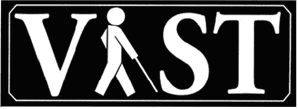 Department of Veterans Affairs
Department of Veterans Affairs
Veterans Health Administration
Blind Rehabilitation Service (117B)
810 Vermont Ave. N.W.
Washington, D.C. 20420
http://www.rehab.va.gov/blindrehab/
http://www.rehab.va.gov/PROSTHETICS/blindrehab/BRS_Coordinated_Care.asp
http://www.rehab.va.gov/PROSTHETICS/blindrehab/docs/VIST_Location_7_28_14.xlsx
Losing your vision is never ideal, but you are not alone. If you or a loved one are a veteran experiencing vision loss, there are Blind Rehabilitation Services to help you enhance your vision and keep your independence. Contact your local VIST coordinator to learn more about these programs and see how the Veteran’s Association can help you.
New England Low Vision and Blindness is proud provider of low vision and blindness products and training services to veterans of the United States Armed Forces with visual impairments. We work closely with the Veteran’s Administration to serve blind and visually impaired Veterans throughout New England. To learn more about our full suite of low vision and blindness products and training services to support veterans click here.

